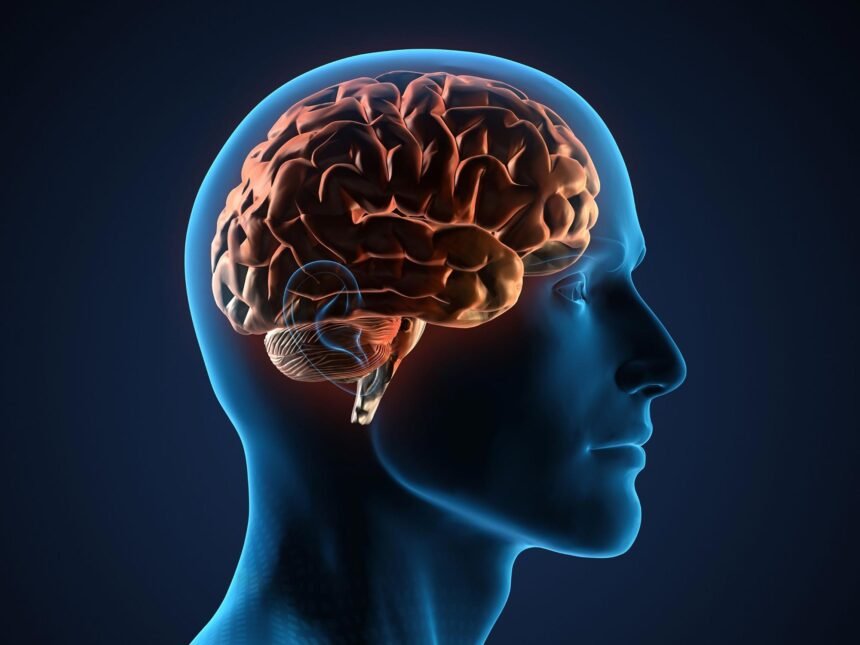The Hidden Cost of Poor Sleep on Brain Health
Poor sleep and brain health are closely linked, yet the critical role of sleep in maintaining cognitive function is often underestimated. Contrary to the idea that sleep is mere downtime, it is an active process that restores the body, strengthens the mind, and clears waste products from the brain. Disrupted or insufficient sleep can quietly erode brain health over the years, leading to subtle yet significant consequences.
Recent research involving more than 27,000 UK adults aged 40 to 70 has highlighted the profound impact of sleep on brain aging. By analyzing detailed brain MRI scans, researchers discovered that individuals with poor sleep habits had brains that appeared older than their chronological age. This accelerated aging could predispose them to cognitive decline, dementia, and other neurological disorders.
Understanding Brain Age
Brain age is a measure of biological rather than chronological aging. While all humans age at the same chronological rate, their brains can show signs of accelerated or decelerated aging due to genetics, lifestyle, and health conditions. Advances in brain imaging and artificial intelligence Poor sleep and brain health now allow scientists to estimate brain age by assessing patterns such as cortical thinning, loss of brain tissue, and vascular damage.
In the study, researchers trained machine learning models using brain scans from healthy participants to define the normal aging trajectory. Applying this model to the larger study population revealed a clear pattern: poor sleep was associated with an older-appearing brain. Participants with poor sleep profiles had brains nearly a year older than expected, while those with healthy sleep patterns showed no such discrepancy.

Measuring Sleep Health
Sleep health is multidimensional and cannot be captured by a single metric. The study assessed five characteristics: chronotype (whether a person is a morning or evening type), sleep duration, insomnia frequency, snoring, and daytime sleepiness. These factors were combined into a “healthy sleep score” to provide a comprehensive view of sleep quality.
Participants with four or five healthy traits had optimal sleep profiles, while those with two to three traits were classified as intermediate, and those with one or none had poor sleep profiles. The analysis revealed that each one-point decrease in the healthy sleep score corresponded to a six-month increase in brain age relative to chronological age. Among the sleep traits, late chronotype and abnormal sleep duration contributed most strongly to accelerated brain aging. https://www.nia.nih.gov/health/sleep
Mechanisms Linking Sleep and Brain Aging
Several mechanisms may explain how poor sleep accelerates brain aging. Inflammation is a leading factor. Sleep disturbances elevate inflammatory biomarkers, which can damage blood vessels, encourage toxic protein buildup, and increase neuron death. Blood samples from study participants indicated that inflammation explained approximately 10% of the association between sleep and brain age.
The brain’s glymphatic system, which clears waste during deep sleep, is another critical pathway. Insufficient sleep may impair this system, allowing harmful proteins such as beta-amyloid and tau to accumulate. These proteins are linked to neurodegenerative diseases like Alzheimer’s. Poor sleep also raises the risk of other conditions harmful to brain health, including type 2 diabetes, obesity, and cardiovascular disease.
Consequences of Accelerated Brain Aging
An older-appearing brain is not merely a statistical anomaly—it has tangible consequences. Research has shown that accelerated brain aging predicts faster cognitive decline, reduced memory retention, and increased risk of dementia. Even modest increases in brain age can compound over time, creating cumulative damage that may manifest decades later.
Steps to Protect Your Brain Through Sleep
The encouraging news is that sleep habits are modifiable. Several strategies can promote healthier sleep and potentially slow brain aging:
- Maintain a consistent sleep schedule: Going to bed and waking up at the same time daily supports the brain’s internal clock.
- Limit stimulants and screen time: Reduce caffeine, alcohol, and exposure to screens before bedtime to facilitate natural sleep cycles.
- Create a conducive sleep environment: Ensure your bedroom is dark, quiet, and cool to enhance sleep quality.
- Address sleep disorders: Treat insomnia, sleep apnea, or other conditions that disrupt sleep with medical guidance.
- Prioritize sleep duration: Adults should aim for seven to eight hours of restorative sleep nightly.
Even small improvements in sleep habits may have a measurable impact on brain health and slow the progression of age-related cognitive decline.

The Role of Lifestyle Beyond Sleep
While sleep is critical, overall lifestyle also shapes brain aging. Physical activity, nutrition, social engagement, and mental stimulation all interact with sleep to support cognitive function. For instance, aerobic exercise improves blood flow to the brain, while a nutrient-rich diet supplies antioxidants that protect neural tissue. Combining healthy sleep with these lifestyle factors creates a robust defense against cognitive decline.
Future Directions in Sleep and Brain Research
This study represents one of the largest investigations of sleep and brain aging, integrating multidimensional sleep measures with thousands of MRI-derived brain features. Future research may explore interventions to optimize sleep across the lifespan and examine whether improving sleep can reverse signs of accelerated brain aging. The findings underscore that maintaining brain health is not solely a medical challenge but a lifestyle choice that begins with prioritizing sleep.
Conclusion
Brain aging is inevitable, but its pace is influenced by our behavior. Poor sleep accelerates biological aging of the brain, increasing the risk of cognitive decline and dementia. By adopting healthy sleep practices, monitoring for sleep disorders, and supporting overall wellness, individuals can protect brain function well into later life. Making sleep a priority is an investment in cognitive longevity and a key strategy to maintain a healthy, vibrant brain.





Very well presented. Every quote was awesome and thanks for sharing the content. Keep sharing and keep motivating others.
Great information shared.. really enjoyed reading this post thank you author for sharing this post .. appreciated
You’re so awesome! I don’t believe I have read a single thing like that before. So great to find someone with some original thoughts on this topic. Really.. thank you for starting this up. This website is something that is needed on the internet, someone with a little originality!